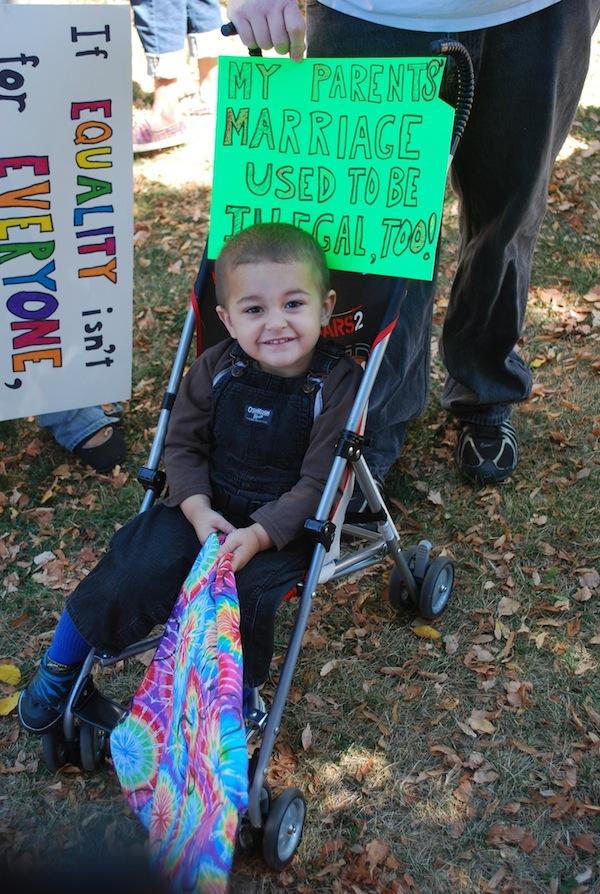On September 14, Decatur made history by holding its first ever marriage equality march.
Sponsored by numerous organizations such as the Gay and Lesbian Association of Decatur (GLAD) and The Civil Rights Agenda, members of the Decatur and Millikin community gathered outside of the Decatur Civic Center to demonstrate support to make Illinois the fourteenth state to legalize same-sex marriage.
“This was mainly an informational march to provide down state and Macon county citizens with info about the inequalities that exist for same-sex couples who wish to be in long term committed relationships with the equal benefits that married couples have,” said Rene Verry, Millikin’s learning resource specialist and co-chair of (GLAD). “This is a civil liberties quality of life issue.”
Between 135-150 participants met in front of the Stephen Decatur statue at William and Franklin Streets. From there, they marched to the Macon County Courthouse holding up signs and waving rainbow flags.
Participants could also register to vote in Macon country and send post cards to Illinois State Representative Sue Scherer. A select few went on to picket her and Representative Bill Mitchell’s offices after the march.
“It went on record that Scherer is watching her constituents to determine if they are for or against marriage equality,” Verry said. “To her belief, most constituents are against it, so she is more likely to be opposed and vote against the bill. We are sending her notes saying we care.”
Before the march began, guest speakers spoke about LGBT advocacy and what one can do to help out. For example, Saturday night began the Green Light Campaign. Everyone who supports same-sex marriage is asked to replace their front porch light bulb with a green light and light it up until the vote is called. Green light bulbs can be purchased at Target.
Speakers included Verry, Scott Cross from Organizing for Action – Springfield, Rev. Larry Hutchinson from Unitarian Universalist Fellowship of Decatur, Buff Carmichael from Equality Illinois and Linda Ryherd-Schroeder, the first person to receive a civil union license in Illinois.
“Everyone is entitled to the same benefits under the law,” Ryherd-Schroeder said. “It is despicable that it has not happened yet.”
To Cross, this issue hits him on a personal level.
“I believe in marriage equality that is valid,” he said. The government has no right to restrict the grant of benefits. We are all individual beings.”
Verry has been asked numerous times why LGBT rights are such an important issue to her. She says that the Civil Rights Movement made a significant impact on her life as a child.
“When we first established this nation, women and minorities were considered second-class citizens. It took decades to right those wrongs of denying groups full citizenship rights. So, it is disturbing to me that today in the U.S. that we still have to explain why citizens should have civil liberties. It is an issue of fairness. If there is a group of people within the U.S. that we can officially discriminate against without valid reason, then anybody’s civil liberties are in question. LGBT people are not criminals. They are no unproductive. They are citizens like your neighbors, family and friends. Yet, we are treating them as if they don’t deserve the same civil liberties as everyone else.”
This event was intentionally planned to be held this month because on Oct. 22, all Illinois residents are invited to join the march for equality in Springfield. This march is expected to have at least 10 thousand participants.
“We are stirring up momentum for the October event,” Verry said. “Most of these marches are occurring in northern Illinois and we went to show that southern and central Illinois are equally concerned and committed to marriage equality. We want opportunities for allies or people who are not LGBT. Regardless of sexual orientation, marriage equality should be a fundamental civil liberty.
“We want people to understand that while civil unions are a step in the right direction, we are still very short from providing the same opportunities and protections. We also want to make people aware of the extent of inequality that current occurs.”

